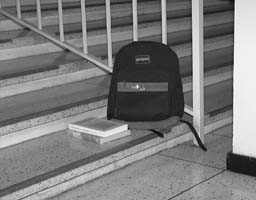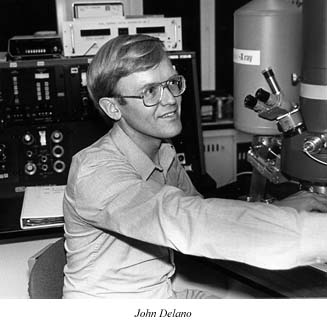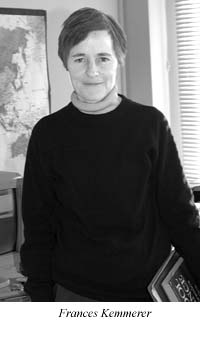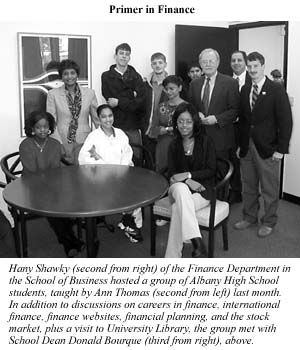SEFA Campaign/United Way 1997-98
Progress as of 11/25/97
# Contributing
Unit Goal Collections % of Goal Employees
President's Office $1,600 $1,634 102% 9
Academic Affairs
VP & Support Units $4,400 $2,787 63% 26
College of Arts & Science $20,500 $9,816.20 48% 65
Rockefeller College $7,300 $6,340 87% 40
Business $2,700 $1,919 71% 15
Education $6,300 $5,182.80 82% 27
Public Health $2,600 $1,089 42% 8
Libraries/Info Sys $8,100 $5,627 69% 40
Total for Academic Affairs $51,900 $32,761 63% 221
Finance & Business $6,400 $3,885.60 61% 40
University Auxiliary $600 $468 78% 2
Research & Grad Studies $4,500 $2,710 60% 18
Student Affairs $5,700 $4,721 83% 40
University Advancement $2,200 $1,052 48% 9
Other $2,100 $428 20% 4
Total $75,000 $47,660 64% 343
On Nov. 30, the University Police Department (UPD) initiated an Anti-Theft
Outreach Program. In an effort to remind people not to leave their
belongings unattended, UPD officers will be handing out flyers and posters
as well as sending email to students, faculty and staff.
In addition, the officers will be distributing “gotcha tags”for placing on
unattended purses or other items to remind the owner that someone could
have taken the item. UPD also will assign additional personnel during the
month of December since thefts tend to rise as the Christmas season
approaches.
Theft represents more than 30 percent of all crime reported to UPD. And
more than 30 percent of these thefts are the result of belongings left
unwatched. “It is hoped that by reminding the University community of the
importance of securing its property, we might prevent much of the theft
that occurs during this time of year,” said UPD Chief Frank Wiley.
The theft outreach initiative is part of UPD’s community policing system.
Among the new programs in this system are the Client Satisfaction Survey,
given to anyone who has contact with UPD, and the Park, Walk and Talk
program, where officers get out of their patrol cars and interact more with
people.
The University will hold its December Graduates Assembly on Sunday, Dec. 7,
at 1 p.m. in the RACC. John Delano, chairman of the Department of Earth and
Atmospheric Sciences, will deliver the Commencement Address, entitled “Yet
Another Crossroads.”
Delano describes his topic this way: “Many individuals, institutions, and
nations find themselves today at ‘yet another crossroads’. All are
attempting to understand their roles, responsibilities, and opportunities
in the post-Cold War era. In charting a course into the future, it is
important to boldly and explicitly identify our values and our strengths.
“While facing challenges of the current magnitude is not easy, and success
is not assured, it is important to be optimistic, and to be guided by
axioms and principles provided to us by those who have succeeded in the
past. Some of those axioms and principles will be discussed in the context
of how they may assist us at this, and future, crossroads in life.”
Delano, an associate professor of geochemistry and an expert on planetary
exploration, received his Ph.D. in geochemistry from the University at
Stony Brook. A recipient of the Chancellor’s Award for Excellence in
Teaching, his research deals with topics such as chemical analysis of lunar
samples, development of geochemical methods of precise time-resolution of
biological and tectonic events in the geological record, and constraints on
the origin of life.
In addition to serving on the editorial board of the professional journal
Geology, he has served on four advisory panels for NASA. The author of more
than 50 scientific publications, Delano is a member of the Geochemical
Society, Sigma Xi, and the Geological Society of America.
According to Jessica Casey, director of Student Activities, approximately
500 undergraduates are eligible to graduate in December this year and more
than 325 are expected to participate in the December ceremony.
Locally and globally, Frances Kemmerer, an associate professor in the
School of Education’s Department of Educational Administration and Policy
Studies (EAPS), has become a major voice in the financing and development
of education systems.
“She is one of the three or four most outstanding people working today in
the economics and international financing of education,” said Douglas
Windham, a professor in the department and a close associate of Kemmerer’s.
Kemmerer has travelled throughout the developing world, to places as
diverse as Haiti, Somalia, Bangladesh, Pakistan and Uzbekistan, to mention
a few, as an advisor on the financing and administering of schools,
colleges and universities. She works under contract to a variety of
institutions, including branches of the UN like the World Bank and UNICEF;
agencies like the U.S. Agency for International Development (USAID); and
the Asian Development Bank, based in Manila.
She has also studied the financing of education here in New York State.
During the mid-eighties, she undertook a project with Fred Dembowski, now
chair of EAPS, to study tax-base and funding allocation schemes in New
York. This work was done on behalf of the New York State Senate’s Education
Finance Committee.
A first glance at Kemmerer’s resume, however, may yield a puzzled response:
before she earned her doctorate in the economics and financing of education
(at the University of Chicago in 1981), her undergraduate background was in
philosophy, and her masters degree was in world religions.
Windham has an explanation: “Her interest in equity and fairness permeates
everything she does. She takes her values and applies them in the economic
sphere — promoting fairness, whether the issues are those of gender,
ethnicity or language.”
And Kemmerer herself said, “My concerns are primarily equity concerns.
Economics is about the allocation of resources. Who gets what and why?
Educational finance involves a set of philosophical as well as practical
issues.”
As she spoke, her computer screen glowed in the background, displaying a
paper-in-progress which she is writing with Windham and World Bank
personnel. The paper will help guide World Bank policy in future
interventions in developing nations. Maps, photos, and artifacts from
around the world quietly punctuate her office space.
Kemmerer is quick to point out that much of her work is undertaken with
colleagues, and that most members of the department are accomplished in the
area of international education. “That’s what’s so interesting about our
department,” she said.
Still, the work listed under “supplemental activities” on her vita could
easily make a career in themselves.
This past summer, Kemmerer worked on two separate projects in developing
countries — Cambodia and Mongolia — and a comparison of the two projects
gives some idea of the range of circumstances in which she works.
In Cambodia, working for USAID, Kemmerer and Anthony Cresswell, another
EAPS faculty member, gave a three-week planning workshop to ministry of
education officials in Phnom Penh, providing training in planning and
research skills. This was Kemmerer’s first visit to Cambodia.
Although the workshop itself went well, Kemmerer described Cambodia as a
“post-conflict nation” in which Pol Pot’s killing of two million people has
left the education system with enormous handicaps and relatively few
trained personnel. Of the ministry personnel she met with in Cambodia, some
had masters degrees and some had only primary educations.
“This is the first year since the `holocaust’ in which their university has
been able to offer freshman through senior courses,” she said. “Cambodia
has an extraordinary need for external support that hopefully will be gone
after a few generations.”
Mongolia, which Kemmerer visited with Windham, is experiencing different
problems.
Kemmerer had been there before. “It was like a homecoming,” she said. In
contrast to Cambodia’s status as “post-conflict,” she described Mongolia, a
former ally of the Soviet Union which now stands as a buffer between Russia
and China, as “post-command,” a reference to the controlled, centralized
economies of the Soviet era.
Mongolia’s education had been heavily subsidized by the Soviets; since the
break-up of the USSR, that funding has dried up, with the result that
Mongolia’s education system “looks good on the surface — it’s
infrastructure is intact and it has a well-educated population and highly
trained educators — but it is drawing down on its capital stocks. Nothing
is coming in and it is downsizing severely. Mongolia will need external
support to get them through this transition.”
Asked if any of her work has been particularly gratifying, Kemmerer said,
“I’ve loved all of it. In all of this work you get so much more than you
give, just because you learn so much about culture and issues.”
Kemmerer described her contribution to developing nations in
characteristically modest terms: “Our recommendations often serve to give
outside support to those people within the developing countries who are
already working toward similar goals.
“In our sector work, we always strive to be fully collaborative, involving
all the stakeholders in the process. An outside team of six to eight
members is paired with a team of local consultants, heads of ministries,
representatives of teachers, and where possible in the subsectors, groups
of teachers and parents.”
Kemmerer’s international work has had a striking effect on the student
population at the University: “We’ve gotten a lot of students this way.
I’ve had students from every country I’ve worked in. They eventually find
their way here.”
She teaches a full courseload, and department chair Fred Dembowski called
her a “mainstay” of the doctoral dissertation seminar, which she teaches
nearly every year. This means that most doctoral students work with her
immediately before writing their dissertation proposals. Dembowski said
that as a result, she currently serves on over twenty dissertation
committees, and chairs many of them.
Windham had a further explanation of Kemmerer’s presence on so many
dissertation committees: “She is one of the very best teachers the
University has — students quickly figure out who has the expertise and who
will devote the time and patience to their dissertation work.”
Windham calls Kemmerer an “ideal of what a University professional should
be, in terms of teaching, research and service to the community.”
Despite Kemmerer’s extensive international work, there is one aspect of it
where she feels she hasn’t done enough. Though she has done a lot of sector
assessment — analyzing the needs and capacities of education systems, and
she’s done a lot in the area of teacher incentives — finding the right mix
of financial and nonfinancial rewards for teachers, Kemmerer said that her
work in community support — working with the families of students and other
community members — has been mostly theoretical.
To be directly involved with community support, she said, would require a
commitment to long-term fieldwork which she hasn’t yet been able to make.
But when asked whether her future will include any change in that
situation, Kemmerer responded, “Yes, I am definitely going to do it.”
UPD Says “Gotcha” to Theft

Delano to Tell December Grads of Post-Cold War Challenges

She finds Support Systems to Bring Equity to Education Worldwide
 By John LeMay
By John LeMay

